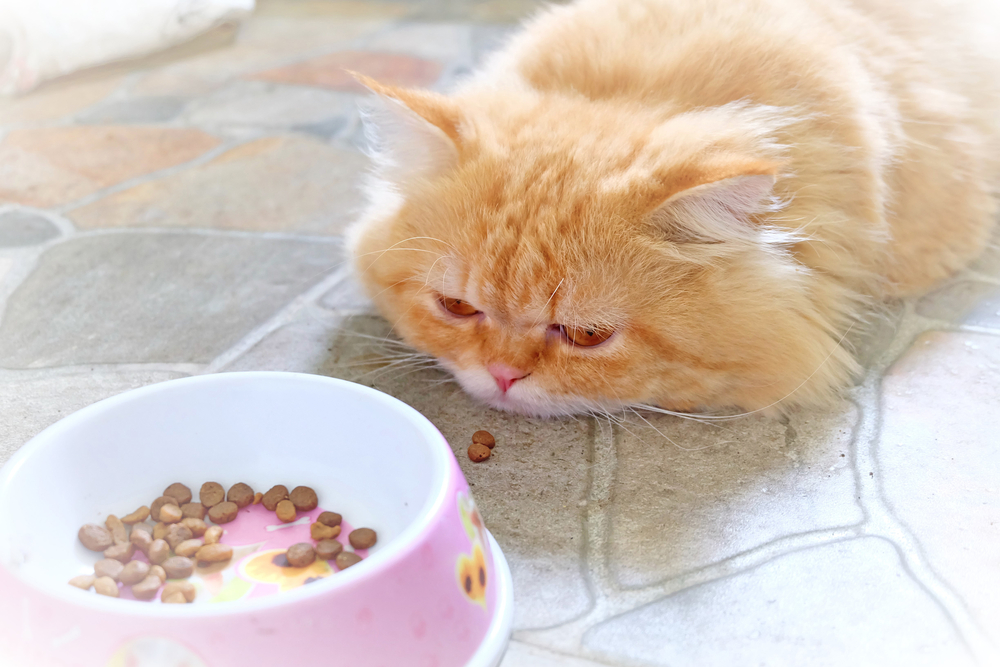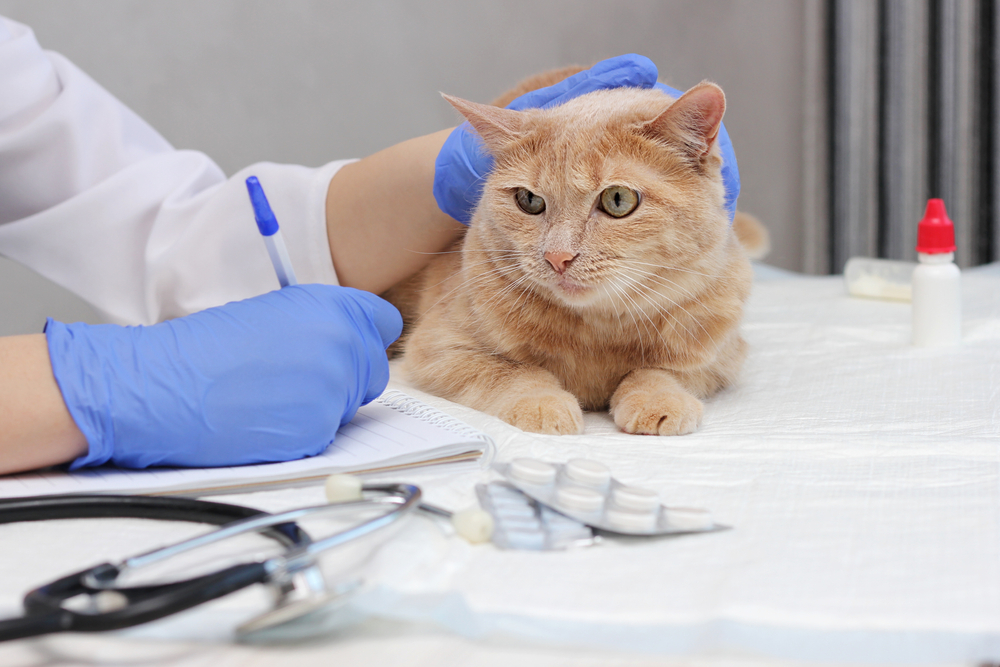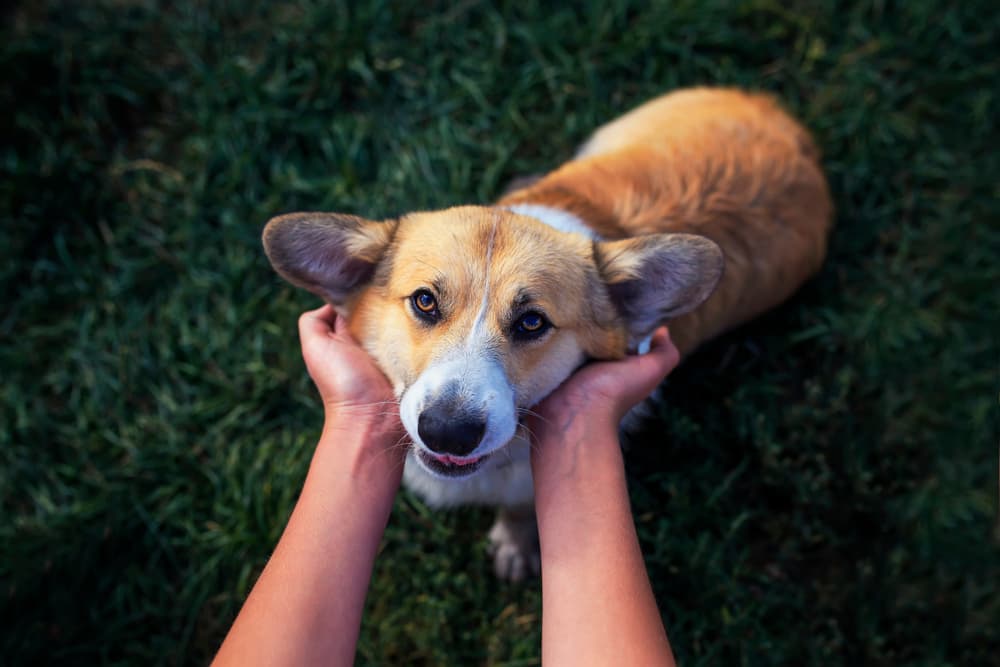Gastroenteritis (Vomiting and Diarrhea) in Dogs and Cats
Updated on June 18, 2024

Vomiting and diarrhea are the most common signs of gastrointestinal upset. There are many possible causes for these conditions: viruses, parasites, eating something bad, or worse — cancer or organ problems, such as kidney failure. Ideally, treatment focuses on the underlying isue, and can be as simple as temporarily withholding food, though it can be as complex as surgery or chemotherapy.
Overview
Essentially gastroenteritis means an upset or inflamed stomach and intestines. Like with people, gastroenteritis in pets can be caused by a variety of underlying issues, which can range from minor to life-threatening.
Vomiting usually indicates irritation in the stomach and upper small intestine, while diarrhea can mean irritation anywhere along the intestinal tract, but these are mere generalizations, of course.
Symptoms and Identification

You can tell a lot about the nature of the problem from the character of the vomiting or diarrhea. For example:
- Foreign material such as bones, sticks, leaves, grass, toys or garbage contents may be seen in vomited material when dogs and cats eat indiscriminately. Vomitus that contains dark, gritty material that looks like coffee grounds can mean irritation or bleeding in the stomach.
- Feces that are dark or look like tar can indicate bleeding in the stomach or high up in the intestines. The blood is digested before it’s passed, which is why it takes on such a dark color.
- Diarrhea that is watery or covered with mucus typically means a problem in the colon, which is the organ responsible for absorbing excess moisture from the stool.
- Streaks of red, undigested blood in feces tends to indicate a problem lower down in the digestive tract, typically the colon or rectum.
Because your pet can’t talk, your veterinarian counts on you for important information, like the signs noted above. Watch your pet’s gastrointestinal activity so you can describe the amount, frequency, and appearance of the vomiting or diarrhea. If possible, take a sample of the material to show your veterinarian. Your vet will also need to know whether your pet is drinking normal amounts of water, has a normal appetite, and is otherwise acting okay. After doing a physical exam, the vet may need to run some diagnostic tests. These may include:
- Blood work to look for organ problems like kidney disease
- Fecal testing to check for intestinal parasites or other abnormalities (checking several samples is often needed)
- Abdominal X-rays to look for masses, foreign bodies, or signs of obstruction
- Abdominal ultrasound examination to look closer at the intestines and other abdominal organs
- Depending on the results of these tests, more specific diagnostic tests may be recommended.
Treatment
All featured products are chosen at the discretion of the author. However, Vetstreet may make a small affiliate commission if you click through and make a purchase.
Cases of mild vomiting and/or diarrhea typically respond well to TLC and basic home care. Withholding food for 24 hours to allow the gastrointestinal tract to rest may be recommended. If you have a young puppy or kitten or a pet that already has another medical problem, ask your veterinarian if it is safe to withhold food. If the signs resolve, your pet can then be started on small amounts of bland, highly digestible food, such as boiled chicken and rice, or a prescription intestinal diet. (See the entry on both vomiting and diarrhea as symptoms for more information on how this condition is best treated.)
If parasites are the problem, medication can generally be prescribed to treat the condition.
A high-quality probiotic may help improve your dog’s overall digestive health. Most dogs enjoy a chicken flavor, so Great Poop’s Digestive Support is a must-have. Instead of administering separate prebiotics, fiber, and probiotics, this tasty chewable solution packs it all. Talk to your veterinarian about the timing of probiotics in association with your dog’s current health status.
If gastroenteritis has been severe, long lasting, or accompanied by other signs of illness your vet may give fluids intravenously or under the skin to protect against dehydration. Medications are sometimes prescribed to calm the gastrointestinal tract and decrease the urge to vomit. In some cases, hospitalization for continued treatment and observation is recommended. If the underlying problem can’t be determined, your vet may recommend supportive treatment (like fluids and medications) to help your pet through the illness and give the body a chance to heal.
Unfortunately, not all cases of vomiting or diarrhea are simple and easy to treat. These conditions can sometimes be a sign of more serious problems, such as liver or kidney failure, diabetes, inflammation of the pancreas, severe viral infection, or allergic bowel disease. Some types of cancer can also cause vomiting and diarrhea, especially if a tumor pinches off the bowel and causes intestinal obstruction or damages the structures of the stomach or intestines.
Intestinal obstruction can be associated with intense pain, vomiting, and straining to defecate but passing only small amounts of runny stool, often with blood. This is a true emergency that requires immediate surgery to remove the blockage before the bowel ruptures or is irreparably damaged.
When in doubt, call your veterinarian if you notice vomiting or diarrhea in your pet.
Pet Health Insurance for Gastroenteritis
Although most cases of vomiting and diarrhea in dogs and cats are mild, there are cases that need veterinary treatment and intervention. These treatments may come with unexpected costs. Pet health insurance can help you avoid surprise veterinary bills and help cover payment for medications, IV fluids, surgeries, follow-up exams, and more.
The small monthly cost of pet insurance can add up to big savings if problems arise. Get a pet insurance quote in your area by clicking on the map below:
This article has been reviewed by a Veterinarian.


